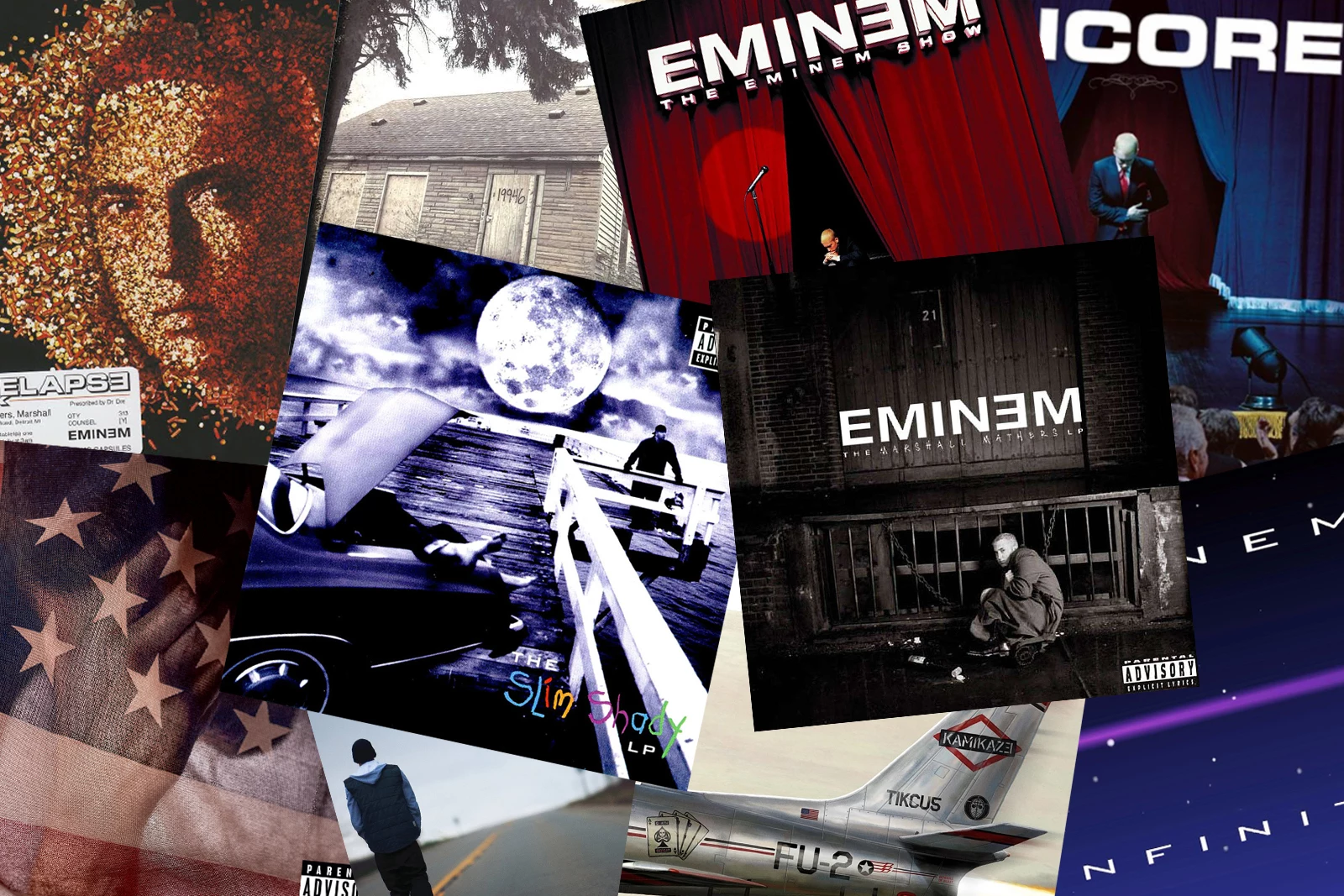


Evidently, fans didn’t care for this newly vulnerable, self-doubting Eminem: Revival sold 267,000 album-equivalent units in its first week, roughly one-third of MMLP2’s debut, and it remains his only major-label album to not go platinum in the United States.

The closest thing to a commercial misfire Eminem has experienced over the past 11 years came with Revival, which I formerly (and accurately) described as “a 77-minute cringe compilation of lousy punchlines, antiquated beats and bloated pop-rap crossover bids.” Revival found Eminem questioning his own place in a music industry he had once detonated and rebuilt at his whim, while also lambasting President Donald Trump and the state of America in 2017. They got a reprieve with 2013’s The Marshall Mathers LP2, a fairly consistent showcase of lyrical acrobatics and Rick Rubin’s classic rock-sampling production. They lapped up the gratuitous, accent-riddled horrorcore of 2009’s Relapse and the ham-fisted, aspirational power ballads of 2010’s Recovery. If Eminem’s post-hiatus output has proven anything, it’s that he can commit no musical sin too grievous for his fans to forgive. Lucky for Eminem (and much to the chagrin of his critics), he can rehash these tirades ad infinitum as long as he maintains a palpable level of vitriol, because his fans crave them, and they will ensure he remains a chart-topping phenomenon without ever having to release another good album. He’s caught in an endless cycle of outrage and revision, arguing his critics have no idea what they’re talking about while making minuscule concessions that, okay, maybe his last album had a few shortcomings, but this time he’s going straight for the jugular. On “Premonition (Intro),” Eminem raps: “I sell like four mil' when I put out a bad album / Revival flopped, came back and I scared the crap out 'em / But Rolling Stone stars, I get two and a half outta five and I'll laugh out loud.” Em has built a cottage industry out of insular, rancorous albums that rage against his critics while not actually doing much to prove them wrong. Perhaps more importantly, Music to Be Murdered By is littered with diatribes against the critics who slammed Eminem’s last album, 2018’s Kamikaze, which in turn excoriated the critics who dunked on 2017’s Revival. There are flashes of caustic wit and technical wizardry, but they’re flanked by a gleeful admission of sexual harassment (“Those Kinda Nights”), a wishy-washy attempt at gun control advocacy (“Darkness”) and mockery of a modern-day terrorist attack (“Unaccommodating”). It is a lumbering, 20-song smorgasbord of wannabe pop-rap bangers, bombastic rap-rock clunkers, half-baked revenge fantasies and morose ballads. Quality may be subjective, but it’s hardly revelatory or controversial to suggest Music to Be Murdered By falls far short of the standards Eminem set with his triumvirate of classic albums: The Slim Shady LP, The Marshall Mathers LP and The Eminem Show.


 0 kommentar(er)
0 kommentar(er)
